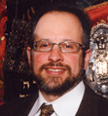 Several congregants who heard this sermon at Yizkor on Shavuoth suggested I share it. So I, along with Beth, do so with blessings for a pleasant, relaxing and memorable summer. Please know that we welcome you to our Shabbat services and encourage you to keep our pulse strong in the summer months. My thanks to Rabbi Yaacov Reimer for ideas in this very personal sermon. If it is self indulgent, please forgive me.
Several congregants who heard this sermon at Yizkor on Shavuoth suggested I share it. So I, along with Beth, do so with blessings for a pleasant, relaxing and memorable summer. Please know that we welcome you to our Shabbat services and encourage you to keep our pulse strong in the summer months. My thanks to Rabbi Yaacov Reimer for ideas in this very personal sermon. If it is self indulgent, please forgive me.
We are at time of yizkor and also at a time of graduation. In a way, this is interesting because the common denominator in the two events is that there are times in life when its imperative that we move on.
At graduation, when folks near the end of high school and college, they sense the time has come to be moving on. Similarly, sometimes people are lucky enough to know that the end of their life is near, but more, this is not the case. There was a movie out some decades ago entitle Girl Interrupted, about mental illness, but of course in this case, we see a case of “loved one interrupted,” at the time of a person’s passing. We may know, on some level, that a person is at risk or a loved one is seriously ill. But we are not always granted closure, and hold out hope that the end is not so near and there will be time for goodbyes later. Often a stroke, a heart attack or a coma prevents that closure. I am privileged, as a rabbi, to look in on families whose loved ones are in the process of dying. I am deeply impressed with the commitment of so many to be there in time to bid adieu; to see one’s loved one off, to spend last days and moments together, to convey to the dying that they are treasured, not alone, and to be together in the end. And 'though it’s a strange turn of phrase, lucky are families who have the ability to do so.
Rabbi Reimer points out that there are really two kinds of goodbyes. The first is a graduation kind of good bye. Fellow students know on some level, when they sign one another’s year books, that they may part for decades and perhaps a lifetime. Their palling around was good in its era, the dating and the hanging out was great, and no doubt, these days, emails, cell phones, Twitter and Facebook "friending" promise that the ties won’t be severed. But the truth is that many of those relationships will phase out. We know instinctively that we must move on and develop other relationships, and we are strengthened and grow from earlier ones. An English dictionary tells us that this is the meaning of the word "goodbye." It developed as shorthand in the 16th century for "God be with you." If a person left on a voyage, we said it because who knew if the ship would sink in a storm. Who knew if a person in travel would contract a deadly disease. In a way, it’s a parting phrase that conveys the idea that it was a good run and may you have only blessing in life. It’s a phrase of moving on, a goodbye that, in most cases, we say at graduation.
But with our family and with our dearest friends we don’t say "good bye," we say "see you later," and hopefully, "see you soon." The Talmud teaches us something beautiful about when we leave an important tractate. Some of them simply say selicha lei massechet sheviit–go on your way and be well. But the big ones, such as Shabbat Yoma Keddushim pesahim berachot, say Hadra lach–we will return to you and your issues and topics, and be on your way. That’s how we bid adieu to dear friends and especially to family. We know, with parents and grandparents, with siblings and friends, that we go through stages. But we also know that we never really move on. We share our next stage with them. We will return to them changed, but nonetheless, they will always stay important factors in our lives.
Until, of course, there is person interrupted. That is the harshest goodbye, even with a family sendoff, and especially without it. I was not one of the fortunate ones to be able to say a final goodbye to my dad. I have been thinking of this lately because soon, I will be the age he was when he died. He was taken from us far too early. Fortunately, Beth and I had just been married, and he had been there and danced with us and been moved by our love for one another. In three weeks time though, Dad suffered a massive heart attack. He died on the way to the hospital. None of us got to say good bye, even my mom. But a pearl in Jewish tradition is that 'though the loved one moves on, and 'though we know they are severed from this plane, we affirm that their neshama lives on. They are bound up in the bond of life. Somewhere from beyond the horizon–the partition–we still hear their voice feel their souls and feel their effect. We believe that on some level they share in our joys and our sorrows. That is what yizkor is about, isn’t it? We remember them and wish that they share in our yontifs. We invite their soul, in our prayers, to be part of our lives now.
There is a phrase that comes from proverbs–shma bene torah imecha ve al titosh musar avicha. Listen, son, to your mother’s Torah, and don’t forget your father's wisdom. Some wonder why that phrasing. Shouldn’t it be the other way around? Traditionally fathers must teach their children Torah mothers usually teach their wisdom. Perhaps we might read it as "hear the words of shechina, the words God gave us at Sinai, when He embraced us as a mother. But always value the wisdom of our parents–our fathers and mothers."
In a sense, then, we receive two sets of tablets, God’s, and the wisdom the oral law of our loved ones. We are mindful of that wisdom and that influence at yizkor. Just as the skies opened and we connected to God at Sinai, so the heavens open for us between ourselves and our dearly departed. They are a part of us and they still live in us.
So let me share with you the other ten commandments that my dad, Meir ben Eprayim Zal, gave to me:
1. Love the Jewish people and especially Jewish children – Dad was a Jewish educator.
2. Love the Hebrew language – He knew it in the Torah and siddur, but he also wrote Hebrew love poems.
3. Value the insights of others and try not to judge them – He didn’t agree with everything you said, but he rarely held it against you for very long.
4. Be pleasant and warm with others – My father made you feel appreciated and valued.
5. Work hard…and play hard – He was gone morning to night, but on Shabbes we had him.
6. Understand the gift the Jewish statehood and argue her case and feel her pain
7. Treasure Jewish tradition and pass it on
8. Love your children, but without smothering them
9. Treasure a good joke
10. Enjoy the simple pleasures – Here's what we did as a family on the summer days of Winnipeg. Dad took us to see the fountain and lights at night at the parliament building. The effect was rainbow colors, and then, we went out for ice cream at Dutch Maid.
My friends, we will all, at times, need to move on and let others move on, as we go through life. We will graduate and move on to different lives and different places and phases in our lives. Many friends will be left behind. But may we always keep our good friends and our families near. May way not say goodbye, but rather, hadrah leih–later, we will return to you. But when the time comes that those we love die, may we also say hadrach lai–we will return to you. And you will return to us–in the qualities and values that you bestowed us, so as to become the part of us that never leaves us. Amen.
